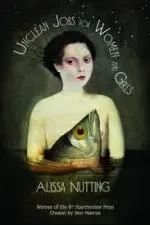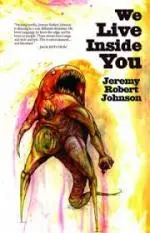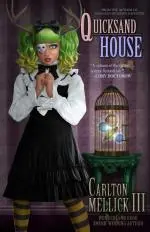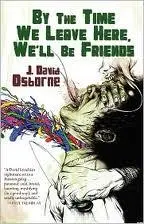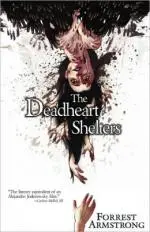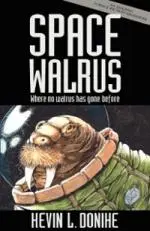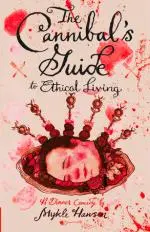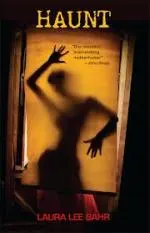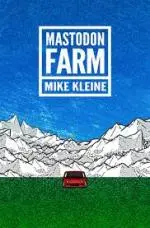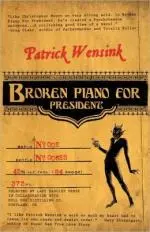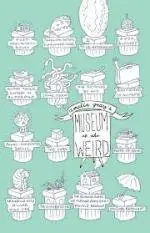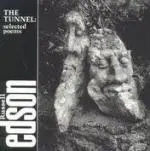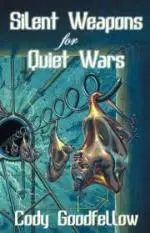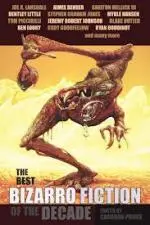For nearly fifteen years, a handful of independent presses have specialized in publishing weird, awesome fiction reminiscent of cult films like Eraserhead, Jan Svankmajer’s Alice, Videodrome, Tetsuo: the Iron Man, and The Toxic Avenger. These publishers, spearheaded by Eraserhead Press, wanted fiction that was surreal but not surrealist, dark but not quite horror, futuristic but not science fictional, fantastical but not fantasy, unusually written but not necessarily experimental. They wanted weird movies in prose. It didn’t take long for these books to resonate with readers, and after the success of several early titles, most notably Satan Burger by Carlton Mellick III, Foop! by Chris Genoa, and Angel Dust Apocalypse by Jeremy Robert Johnson, the bizarro fiction genre was formed.
Since its early days, bizarro fiction has exploded into a vibrant underground scene of writers, artists, and filmmakers. In the past five years, the bizarro label has broadened to encompass more styles and tastes than ever before. Whether you’re a seasoned bizarro reader or looking for a solid introduction, here are fourteen books paving the way for the future of fiction.
![]() 1. Unclean Jobs for Women and Girls by Alissa Nutting
1. Unclean Jobs for Women and Girls by Alissa Nutting
If someone doesn’t rank Alissa Nutting among their top ten contemporary short story writers, it’s probably only because they haven’t read her yet. That will all change soon. Tampa, her just-released first novel and leap to a major publisher, already made a splash with a controversial excerpt published in Cosmopolitan before its release. I hope (and expect) that hordes of readers who come to her by way of Tampa will immediately seek out this collection, which contains stories about people getting boiled alive, a woman who has holes drilled in her bones to house an ant colony, a porn star on the moon, and so much more.
![]() 2. We Live Inside You by Jeremy Robert Johnson
2. We Live Inside You by Jeremy Robert Johnson
My favorite writers are those whose stories feel chiseled out of blocks of pain, not for purposes of exhibition or therapy, but from the knowledge that humans are stronger, smarter, wittier, and just all-around more decent than the pain that causes them to do shitty things. Even when their lives spiral out of control, Jeremy Robert Johnson treats his characters with a tenderness that doesn’t betray the fact that they’re fucked. “Persistence Hunting,” two versions of which are found in this collection, is about as good as short stories get.
![]() 3. Quicksand House by Carlton Mellick III
3. Quicksand House by Carlton Mellick III
The godfather of bizarro fiction and author of over forty books, choosing just one CM3 title for this list was a difficult task. I’ve been reading his books as they come out since I was in high school. My first was The Steel Breakfast Era, one of his early avant-punk novellas. I haven’t looked back since. Quicksand House, his latest, is a great introduction to his work.
![]() 4. By the Time We Leave Here, We’ll Be Friends by J. David Osborne
4. By the Time We Leave Here, We’ll Be Friends by J. David Osborne
Once I heard that this was a prison escape novel set at a Russian gulag in the Siberian tundra, I knew it would be no ordinary book, but the excellent premise, gorgeous Alex Pardee cover art, and impressive blurbs still didn’t quite prepare me for what I found. J. David Osborne’s prose is muscular but sensitive; he understands that tough guys, even criminals, have feelings too. Even when friendship is a means of deceit, for personal gain (and in this case, survival), it’s still friendship. There are scenes in this book that will haunt me forever, not to mention the enigmatic ending, which brings to mind (for me, anyway) another story of death in an unforgiving land: Hemingway’s “The Snows of Kilimanjaro.”
![]() 5. The Deadheart Shelters by Forrest Armstrong
5. The Deadheart Shelters by Forrest Armstrong
Before abandoning his burgeoning writing career to pursue hip hop, Forrest Armstrong established himself as the most stunningly original stylist in bizarro. The Deadheart Shelters follows a slave from his days growing up on a plantation to his successful escape, only for him to tragically succumb to a new type of slavery in the city. It’s an elegy to freedom regained and lost again, to life in the big city, to friends who die too young, and above all, to first loves.
![]() 6. Space Walrus by Kevin L. Donihe
6. Space Walrus by Kevin L. Donihe
The main character of Space Walrus is a pinniped named Walter, who is a test subject aboard a spacecraft. The problem: Walter is in love with the scientist studying him. It’s a heartbreaking tale of unrequited love with an absurd premise, like some long-lost sci-fi paperback you only wish you could find in a used bookstore. Space Walrus shows why Kevin L. Donihe is the best-kept secret of the bizarro genre.
![]() 7. The Cannibal’s Guide to Ethical Living by Mykle Hansen
7. The Cannibal’s Guide to Ethical Living by Mykle Hansen
“I’ve got to stop eating millionaires.” That’s how this satire—by the author whose previous books include Help! A Bear is Eating Me and Hooray for Death—begins. It’s sort of like The Omnivore’s Dilemma by way of Jonathan Swift. From a closed room and a second person narrative, Cannibal’s Guide’s structural restraint is paralleled by the excesses of its narrator, a gourmet chef speaking to the bound and gagged millionaire who will be his last meal. It’s a lesson in comedic timing and a rallying cry for the Occupy movement.
![]() 8. Haunt by Laura Lee Bahr
8. Haunt by Laura Lee Bahr
For those of you looking for another House of Leaves, here’s your fix. Haunt is a puzzle box of a book and about as Lynchian as fiction gets. It’s crime, it’s suspense, it’s drama, it’s horror, it’s bizarro, it’s almost too smart for its own good.
![]() 9. Mastodon Farm by Mike Kleine
9. Mastodon Farm by Mike Kleine
If you’re familiar with bizarro luminaries D. Harlan Wilson and Bradley Sands, or indie favorites Sam Pink and Noah Cicero, then I recommend Mike Kleine’s debut novella, Mastodon Farm, which feels like an homage to all the aforementioned authors, an homage that’s been run through a paper shredder and collaged together as a celebrity gossip column. In Mastodon Farm, you are the star. You drive a Ferrari, have limitless cash at your disposal, and spend your days with the likes of James Franco and Kirsten Dunst, while outside the city something resembling Godzilla attacks. Mastodon Farm is the sort of gem I love discovering in this genre.
![]() 10. Broken Piano for President by Patrick Wensink
10. Broken Piano for President by Patrick Wensink
Yes, this is the ‘Jack Daniel’s book.’ Yes, Patrick Wensink is now writing for the New York Times, Salon.com, Oxford American, and other high profile publications. What you might not know is that before Broken Piano for President, Wensink’s debut, Sex Dungeon for Sale, was published under the New Bizarro Author Series, an Eraserhead Press line dedicated to first books. In under three years, he went from being a trial NBAS author to bestseller. It’s the precise sort of homegrown success the bizarro scene nurtures. Come out to BizarroCon sometime and you’ll see what I mean.
![]() 11. Museum of the Weird by Amelia Gray
11. Museum of the Weird by Amelia Gray
After nearly a decade of reading bizarro fiction, one of the few authors whose weirdness still takes me by surprise is Amelia Gray. When reading a story by her, my initial reaction tends to be ‘You did what now?’ quickly followed by understanding and sympathy for her characters. Seriously, these are just awesome stories.
![]() 12. The Tunnel by Russell Edson
12. The Tunnel by Russell Edson
Russell Edson writes prose poems about eating apes for breakfast, men who marry automobiles, miniature elephants, and the reason why the closet man is never sad. Over the span of almost fifty years, he has chiseled out his own little hole in literature with goofy yet poignant, Escher-esque stories. His influence can be felt in the early works of Carlton Mellick III as well as in the work of other bizarro writers.
![]() 13. Silent Weapons for Quiet Wars by Cody Goodfellow
13. Silent Weapons for Quiet Wars by Cody Goodfellow
Nothing strikes closer to the heart of Cody Goodfellow’s work than New York Times bestseller (and LitReactor workshop instructor) John Skipp’s jacket praise for this collection: “This is high-end psychological surrealist horror meets bottom-feeding low-life crime in a techno-thrilling science fiction world full of Lovecraft and magic.” Enough said, am I right? Silent Weapons for Quiet Wars won the Wonderland Book Award for Best Bizarro Collection of 2009.
![]() 14. The Best Bizarro Fiction of the Decade
14. The Best Bizarro Fiction of the Decade
Full disclosure: I edited this. But don’t mind me, I’m just the party host. Partygoers include Aimee Bender, Joe R. Lansdale, Stephen Graham Jones, Tom Piccirilli, Alissa Nutting, Amelia Gray, Ben Loory, Jedediah Berry, Blake Butler, Ryan Boudinot, and nearly thirty more of today’s best authors. If you want to dive head-first into bizarro fiction and discover all its richest flavors, this might be the place to start.
This is just the tip of the bizarro iceberg. There are dozens of other must-read books in the genre. Some other bizarro legends whose entire bibliographies deserve to be read include D. Harlan Wilson, Bradley Sands, Andersen Prunty, Matthew Revert, Jordan Krall, Andrew Goldfarb, Robert Devereaux, and, oh man, I could just go on. Suffice to say, this genre is one hell of a party, and it keeps on getting bigger.
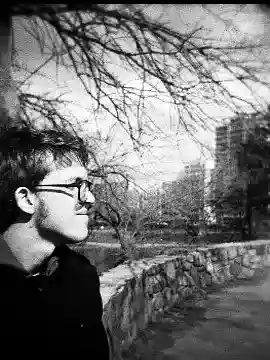
About the author
Cameron Pierce is the author of eight books, including the Wonderland Book Award-winning collection Lost in Cat Brain Land, the controversial cult hit Ass Goblins of Auschwitz, and most recently, Die You Doughnut Bastards. His fully illustrated novel Fantastic Earth Destroyer Ultra Plus (w/ Jim Agpalza) is forthcoming in hardcover in November 2013. Cameron is also the head editor of Lazy Fascist Press and has edited three anthologies, most recently In Heaven, Everything is Fine: Fiction Inspired by David Lynch. He regularly writes about fishing and beer for ManArchy Magazine and is hard at work on Our Love Will Go the Way of the Salmon, a collection of fishing short stories set in the Pacific Northwest. He lives with his wife, dog, and cat in Portland, Oregon.
